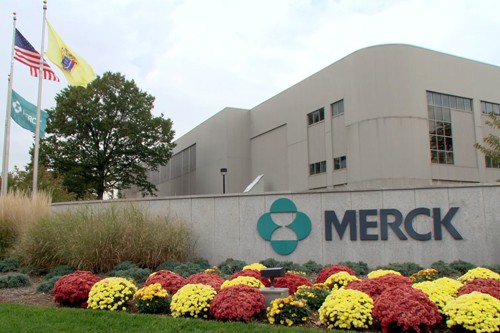
Merck & Co – known as MSD outside the US and Canada – has announced that the European Medicines Agency’s human medicines committee has recommended its Keytruda (pembrolizumab) in combination with chemotherapy to treat biliary tract cancer (BTC).
The Committee for Medicinal Products for Human Use (CHMP) has specifically recommended that the anti-PD-1 therapy be used alongside gemcitabine and cisplatin for the first-line treatment of adults with locally advanced unresectable or metastatic BTC.
BTC is a group of rare and highly aggressive cancers in the liver, gallbladder and bile ducts.
Approximately 211,000 people are diagnosed with the disease each year globally and about 70% of BTC patients are diagnosed at an advanced stage, at which point the prognosis is poor.
The CHMP’s positive opinion was supported by results from the late-stage KEYNOTE-966 trial, in which the Keytruda/chemotherapy combination demonstrated a significant overall survival benefit in these patients versus chemotherapy alone.
The results showed that the Keytruda regimen reduced the risk of death by 17%, demonstrating a median overall survival of 12.7 months versus 10.9 months for chemotherapy alone.
The recommendation will now be reviewed by the European Commission, which has the authority to approve medicines for use in the 27 EU member states, as well as Norway, Liechtenstein and Iceland.
Dr Marjorie Green, senior vice president and head of late-stage oncology, global clinical development, Merck Research Laboratories, said: “Patients diagnosed with locally advanced unresectable or metastatic BTC face a challenging disease with poor survival outcomes, underscoring the need for new treatment options that may help extend their lives.
“The CHMP’s positive opinion brings us one step closer to providing a new immunotherapy regimen, which has shown an overall survival benefit compared to chemotherapy alone, to these patients in the EU.”
The announcement comes less than two weeks after the Keytruda/chemotherapy combination was approved in the US, also for patients with locally advanced unresectable or metastatic BTC.
Beyond BTC, Keytruda holds approvals to treat a wide variety of cancers, including specific cases of bladder cancer, melanoma and Hodgkin’s lymphoma.
There are also currently more than 1,600 trials studying the therapy, including one evaluating it in combination with Merck and Moderna’s investigational skin cancer vaccine.




